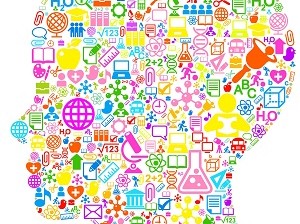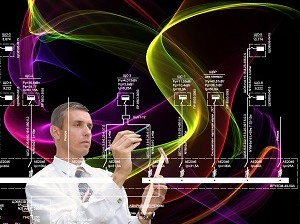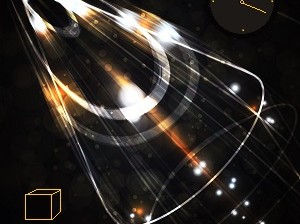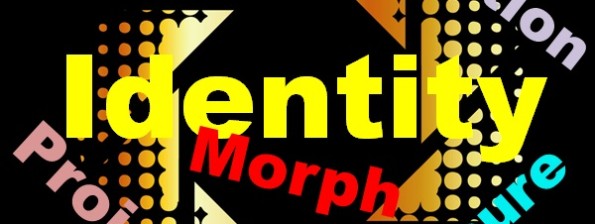Category Archives: Science
02 Aug Artificial Time

Time is omnipresent – you can’t get away from it. It is woven into everything we do and say and understand. It is an inextricable element of context. I was just speaking of how the connections in our brain develop, grow and evolve over time. Representing and handling this “temporal” element is fundamental to any […]
31 Jul Modeling Non-Random Synaptic Links

I have discussed the different meanings of “random” in “The Random Hamlet” and “That’s so Random!” in which the mathematical definition presumes there is some not yet known law that governs the phenomenon, where other definitions suggest that randomness means that the phenomenon is not governed by any law. Remember our reference to Rosenblatt’s early contributions in […]
28 Jul Patterns in the Mind

As we look for suitable solution designs for representing the knowledge and processes we humans use to communicate, we realize that we have no idea what knowledge in the brain looks like. Further, we only have relatively vague ideas about the processes that occur in the brain as we produce and comprehend words, phrases and sentences. […]
26 Jul Parallel Distributed Pattern Processing

PDP Networks We have discussed recognition processes in the brain. Connectionism, a fundamentally implicit approach to neural modeling, was championed by the parallel distributed processing (PDP) group. PDP networks use many interconnected processing elements (PEs) that, according to the PDP Group, configure themselves to match input data with “minimum conflict or discrepancy” (Rumelhart & McClelland, 1986, Vol. 2, […]
24 Jul Pattern Classification in Space

Pattern Classification Visual patterns can be recognized and classified based on prior knowledge: I see that this hairy animal has four legs and is about the same size as my dog, so I’ll assume it is (or classify it as) a dog. This may not be a correct classification, but it’s more correct than classifying it […]
15 Jul From Perception and Learning to Logic

Perception and Learning I am not a cognitive scientist, so all I have said in this section is based on the work of others. On the other hand, I have probably spent more time seriously studying cognition than most computer geeks, and I have tried to form my perspectives around the best of our knowledge. The […]







